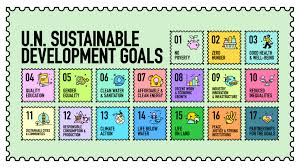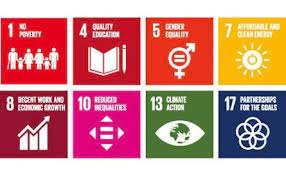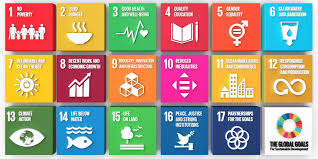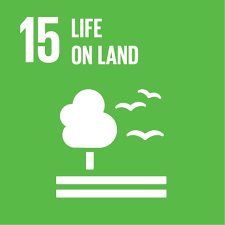The United Nations Sustainable Development Goals (SDGs)
The United Nations Sustainable Development Goals (SDGs) are a set of 17 global goals adopted by all United Nations Member States in 2015 as part of the 2030 Agenda for Sustainable Development. These goals are designed to address various social, economic, and environmental challenges facing the world today.
Key Objectives of the SDGs
The SDGs aim to end poverty, protect the planet, and ensure prosperity for all by 2030. Each goal has specific targets to be achieved over the next decade, with a focus on sustainability and inclusivity.
Examples of SDGs
- Goal 1: No Poverty – End poverty in all its forms everywhere.
- Goal 4: Quality Education – Ensure inclusive and equitable quality education and promote lifelong learning opportunities for all.
- Goal 13: Climate Action – Take urgent action to combat climate change and its impacts.
Importance of the SDGs
The SDGs provide a roadmap for countries, organizations, and individuals to work together towards a more sustainable future. By addressing issues such as poverty, inequality, and environmental degradation, the SDGs aim to create a better world for current and future generations.
Challenges Ahead
While progress has been made towards achieving the SDGs, there are still significant challenges that need to be overcome. Issues such as climate change, economic inequality, and lack of access to education continue to pose obstacles to reaching these goals.
Call to Action
It is essential for governments, businesses, civil society, and individuals to take action in support of the SDGs. By working together and making sustainable choices in our daily lives, we can contribute to building a more equitable and prosperous world for all.
Let us join hands in striving towards the realization of the United Nations Sustainable Development Goals and creating a better future for everyone on this planet.
7 Key Benefits of the UN Sustainable Development Goals: Addressing Global Challenges and Promoting a Better Future
- Addresses global challenges
- Promotes sustainability
- Encourages collaboration
- Fosters inclusivity
- Measurable targets
- Inspires innovation
- Raises awareness
Key Challenges Facing the UN Sustainable Development Goals: Implementation, Resources, Inequality, Climate Change, and Evaluation
- Implementation Challenges
- Resource Constraints
- Inequality Issues
- Climate Change Impacts
- Monitoring and Evaluation
Addresses global challenges
The United Nations Sustainable Development Goals (SDGs) offer a significant pro by addressing global challenges. By providing a comprehensive framework, the SDGs enable the collective effort to tackle urgent issues like poverty, inequality, and climate change on a worldwide level. This approach recognizes the interconnectedness of these challenges and emphasizes the importance of collaborative action to create meaningful and lasting impact across borders and communities.
Promotes sustainability
By emphasizing sustainable development, the United Nations Sustainable Development Goals (SDGs) aim to ensure a better future for both people and the planet. This proactive approach towards sustainability acknowledges the interconnectedness of social, economic, and environmental well-being. By promoting sustainable practices and policies, the SDGs seek to create a world where current needs are met without compromising the ability of future generations to meet their own needs. This commitment to sustainability not only benefits the environment but also fosters long-term prosperity and resilience for communities worldwide.
Encourages collaboration
The United Nations Sustainable Development Goals (SDGs) promote collaboration by emphasizing the need for governments, organizations, and individuals to work together towards shared objectives. By encouraging cooperation at local, national, and global levels, the SDGs foster a sense of collective responsibility in addressing pressing issues such as poverty, inequality, and environmental sustainability. This collaborative approach not only enhances the effectiveness of efforts to achieve the goals but also promotes unity and solidarity in working towards a more sustainable and equitable future for all.
Fosters inclusivity
The United Nations Sustainable Development Goals (SDGs) excel in fostering inclusivity by prioritizing the principle of leaving no one behind. By promoting equality and social inclusion for all, the SDGs aim to create a more equitable and just society where every individual has the opportunity to thrive. This commitment to inclusivity ensures that marginalized populations are not overlooked and that efforts are made to address systemic barriers that hinder progress towards sustainable development.
Measurable targets
One significant advantage of the United Nations Sustainable Development Goals (SDGs) is the presence of measurable targets for each goal. These specific targets provide a clear framework for tracking and evaluating progress towards achieving the SDGs. By having concrete metrics in place, stakeholders at all levels can assess the effectiveness of their actions and initiatives in contributing to the broader goals of sustainability and development. The presence of measurable targets enhances accountability, transparency, and strategic planning, ultimately leading to more efficient and impactful efforts towards building a better future for all.
Inspires innovation
Working towards the United Nations Sustainable Development Goals (SDGs) inspires innovation by encouraging the development of creative solutions and approaches to address complex societal challenges. By setting ambitious targets across various areas such as poverty, education, and climate action, the SDGs push individuals, organizations, and governments to think outside the box and explore new ways to create positive change. This focus on innovation not only drives progress towards achieving the goals but also fosters a culture of creativity and problem-solving that can lead to long-term sustainable development.
Raises awareness
The United Nations Sustainable Development Goals (SDGs) play a crucial role in raising awareness about pressing global challenges and mobilizing action across different sectors. By highlighting key issues such as poverty, inequality, climate change, and access to education, the SDGs serve as a powerful tool for increasing public consciousness and driving collective efforts towards sustainable development. Through their advocacy and promotion, the SDGs inspire individuals, communities, and organizations to take proactive steps in addressing these critical issues and working towards a more equitable and prosperous future for all.
Implementation Challenges
Achieving the United Nations Sustainable Development Goals (SDGs) faces a significant con in the form of implementation challenges. The successful realization of the SDGs demands coordinated efforts from governments, organizations, and individuals alike. However, effectively coordinating these diverse entities can be a daunting task. Differences in priorities, resource allocations, and approaches to sustainable development can hinder the smooth implementation of the SDGs. Overcoming these challenges will require strong collaboration, communication, and commitment at all levels to ensure that progress towards the SDGs remains on track despite these obstacles.
Resource Constraints
Resource constraints present a significant challenge as a con of the United Nations Sustainable Development Goals (SDGs). The lack of sufficient funding and resources can impede the advancement towards meeting the ambitious targets outlined by the SDGs. Without adequate financial support and resources, initiatives aimed at addressing poverty, inequality, climate change, and other critical issues may face obstacles in implementation and effectiveness. Overcoming these resource constraints requires collaborative efforts from governments, organizations, and individuals to mobilize resources effectively and ensure that sustainable development goals are met within the specified timeframe.
Inequality Issues
Addressing inequality issues, such as poverty and disparities in access to resources, is a significant challenge within the framework of the United Nations Sustainable Development Goals. Tackling these complex issues on a global scale necessitates not only policy changes but also substantial investments in social welfare programs, education, healthcare, and infrastructure. The interconnected nature of inequality highlights the need for comprehensive strategies that consider the unique circumstances of different regions and populations. By recognizing the complexities involved in addressing these challenges, stakeholders can work towards creating a more equitable and inclusive world for all individuals.
Climate Change Impacts
Climate change presents a critical challenge to the attainment of various Sustainable Development Goals (SDGs) linked to environmental sustainability within the United Nations framework. The adverse impacts of climate change, such as rising sea levels, extreme weather events, and ecosystem disruptions, can hinder progress towards goals like clean water and sanitation, affordable and clean energy, sustainable cities and communities, life below water, and life on land. Urgent measures are imperative to address climate change effectively and mitigate its repercussions to safeguard the planet’s ecosystems and ensure a sustainable future for all.
Monitoring and Evaluation
Monitoring and evaluating progress towards the United Nations Sustainable Development Goals (SDGs) can present a significant challenge due to discrepancies in data quality and reporting methods among different regions. Ensuring accountability and accurately measuring advancements towards the SDGs require consistent and reliable data sources, which may be lacking in some areas. The need for standardized monitoring and evaluation practices becomes evident to effectively track progress and address gaps in achieving the SDGs on a global scale.





